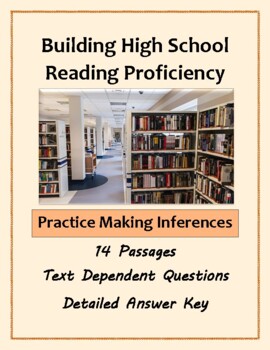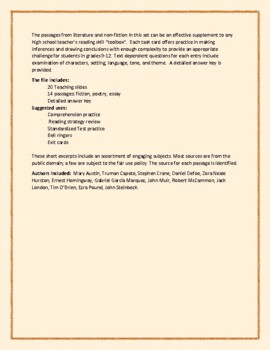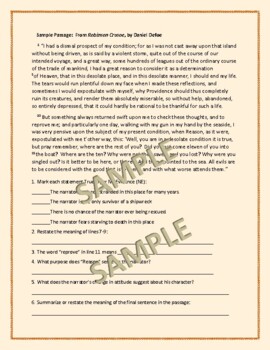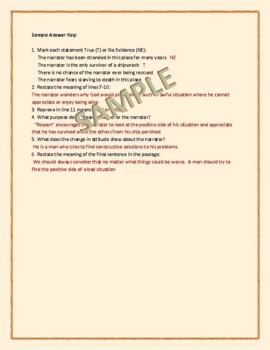Making Inferences: High School Reading Skill Development Passages & Questions
- Zip
What educators are saying
Description
The passages from literature and non-fiction in this set can be an effective supplement to any high school teacher’s reading skill “toolbox”. Each task card offers practice in making inferences and drawing conclusions with enough complexity to provide an appropriate challenge for students in grades 9-12. Text dependent questions for each entry include examination of characters, setting, language, tone, and theme. A detailed answer key is provided.
The file includes:
20 Teaching slides
14 passages: fiction, poetry, essay
Detailed answer key
Suggested uses:
Comprehension practice
Reading strategy review
Standardized Test preparation
Bell ringers
Exit cards
These short excerpts include an assortment of engaging subjects. Most sources are from the public domain; a few are subject to the fair use policy. The source for each passage is identified.
Authors Included: Mary Austin, Truman Capote, Stephen Crane, Daniel Defoe, Zora Neale Hurston, Ernest Hemingway, Gabriel Garcia Marquez, John Muir, Robert McCammon, Jack London, Tim O’Brien, Ezra Pound, John Steinbeck.





